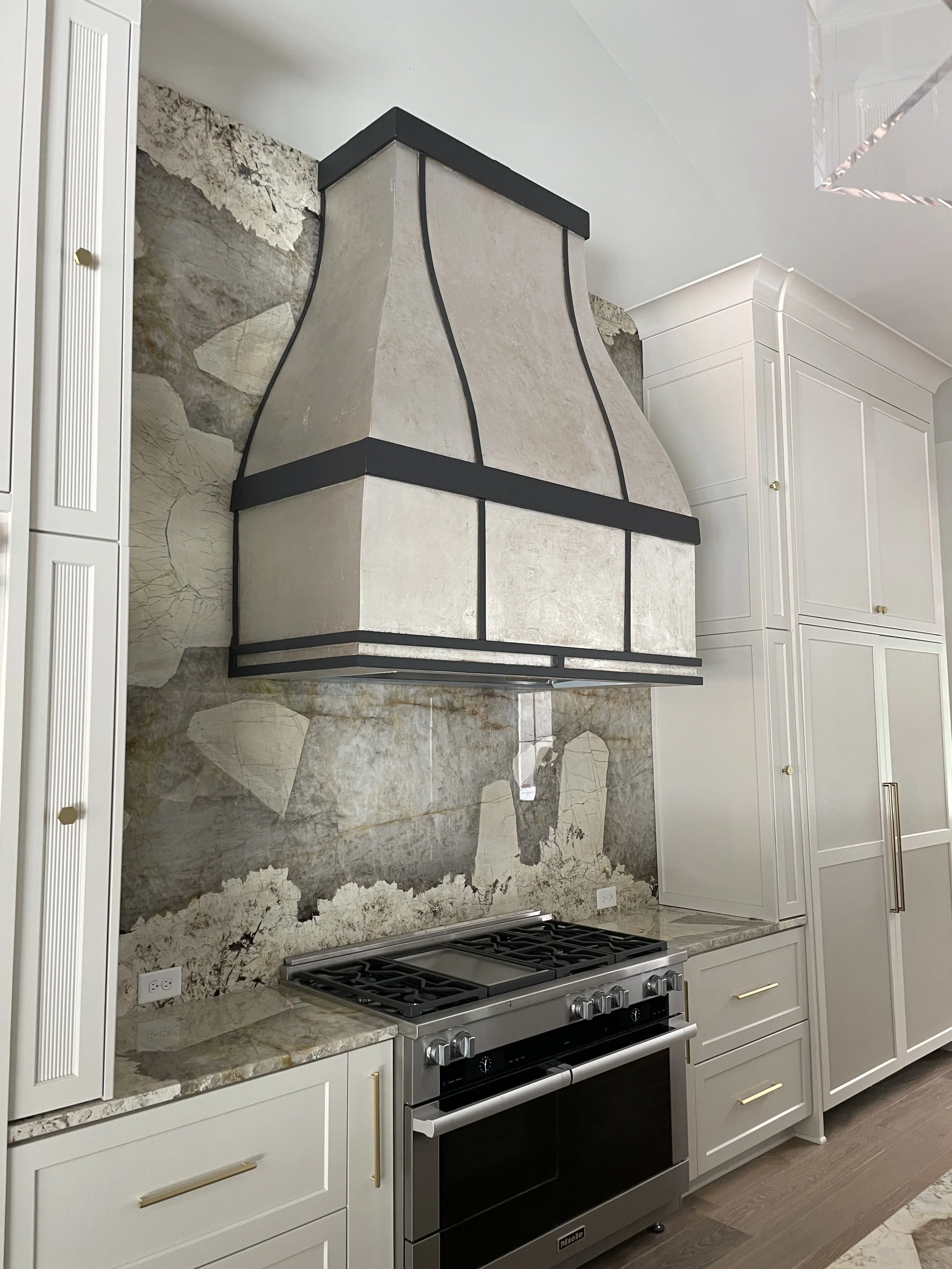Beneath the Surface: Comparing our Favorite Kitchen Materials
A comparison of a variety of surface materials used in kitchens. Understanding the advantages and disadvantages of marble, quartzite, porcelain and granite can help you make an informed decision for your project.
QUARTZITE
A low-maintenance option with gorgeous visual appeal.
QUARTZITE
Quartzite is a very popular material for designers and homeowners alike — for good reason. It features many advantages and offers a very attractive and luxurious appearance.
Why we love it:
Natural material with many options considered to be exotic stones
Typically less expensive than marble
Resistant to staining and etching — with proper sealing
Low maintenance
Disadvantages to be aware of:
While less expensive than marble, it is still relatively expensive
Prone to scratches
Must be created by an experienced fabricator with correct machines that can cut the material — especially for mitered edges
MARBLE
Classic style: nothing beats the look of real marble.
MARBLE
Marble. Iconic and timeless. This classic stone surface is adored by many. Let’s compare the pros and cons of this time-honored choice.
Why we love it:
Nothing beats the look of real marble countertops
Great for cooking and baking
Marble stays cool to the touch
Adds value to a home
Disadvantages to be aware of:
Stains easily (but there are sealers that can minimize staining)
Etches easily (unless you opt for very expensive sealants that will prevent etching)
Very expensive
Most of the downsides to marble can be mitigated with proper preparation and care, but cost may prohibit its use for some clients. If you are drawn to the look of real marble and willing to invest in this material, trust that with the right sealants and care it is a marvelous choice.
PORCELAIN
This versatile surface offers a realistic stone look for a variety of uses.
PORCELAIN
Increasingly popular, this solid surface is a great choice for many reasons.
Why we love it:
Appearance: Realistic stone look
Versatility: may be used on furniture, walls, ect and other applications
Variety: Can be crafted very thin and extra large
Durable: stain, scratch, etch resistant
Disadvantages to be aware of:
Edges can chip easily
Color and pattern are only on surface, not all the way through like true stone materials
Must be crafted by experienced fabricator, especially with the very thin 4mm and 8mm thick material
Limited options for edge shapes and styles
Porcelain is a good choice for those seeking a classic look with simple edge shape. It also offers marvelous versatility for backsplashes due to its ability to be crafted extraordinarily thin and large for oversized surface areas.
GRANITE
A popular stone material for a wide variety of surfaces.
GRANITE
Granite was the popular choice for builders for many years. Here are our thoughts on this frequently used material.
Why we love it:
Typically less expensive than other stone or stone-like materials
Stain resistant
Easily sourced from “big box” stores
Disadvantages to be aware of:
Common, therefore does not lend itself to “unique” appearance
Considered a “builder grade” material
Requires yearly sealants to maintain its scratch resistant quality
While granite is still considered a good choice, our clients typically opt for less common materials such as the others featured in this post. The granite featured above in out photo is called Patagonia, and is a very expensive and exclusive granite.
BOTTOM LINE
Countertops and backsplashes make a tremendous visual impact in kitchens and baths and truly set the tone for the space. More importantly — their durability and inherent qualities make a major difference in how you use and care for them.
When building or renovating, seize the opportunity to learn from your interior designer so you can better understand the wide variety of options available to you today. Innovation and creativity have created myriad choices for solid surfaces in modern living. We love collaborating with our clients to create the finished look they love — with the level of ease and maintenance they need.
Questions? Send us a note! We would love to assist you with your project.




